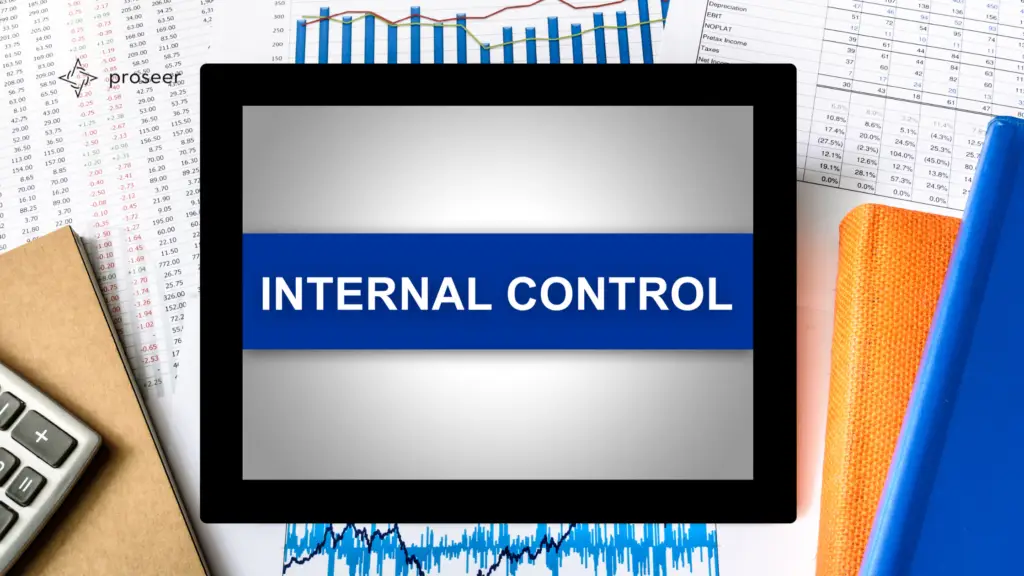As a modern accounting firm, prioritizing security and robust internal controls is critical when designing and managing our clients’ financial systems. Recent IRS warnings and SEC enforcement actions underscore the importance of implementing best practices to safeguard sensitive financial data. Failure to establish adequate accounting controls can lead to inaccurate reporting, undetected fraud, and non-compliance, resulting in financial losses, legal liabilities, and reputational damage.
Table of Contents
Internal Controls
A well-designed system of internal controls is the foundation of sound financial management, providing reasonable assurance that a company’s financial reporting is reliable, its operations are effective and efficient, and its activities comply with applicable laws and regulations. Internal controls are the mechanisms, rules, and procedures implemented to ensure the integrity of financial information, promote accountability, and prevent fraud. Key components include:
- Control environment: Establish a culture of integrity with systems to facilitate control goals.
- Risk assessment: Regularly assess risks and implement controls as needed.
- Monitoring: Continuously monitor controls to ensure effectiveness.
- Separation of duties: Distribute responsibilities to reduce error and fraud risk.
- Review and reconciliation: Compare accounting records with financial reports.
- Physical controls: Implement security measures to protect assets.
- Regular financial reviews: Conduct audits to assess accuracy and compliance.
Documenting control activities is critical to demonstrate regular reviews. Neglecting accounting controls exposes companies to significant financial, legal, and reputational risks. By investing in a system of internal controls, organizations can proactively manage risks, improve operational efficiency, and instill confidence in their financial reporting.
Systems Security for Accounting Controls
In our hyper-digital world, safeguarding financial systems and data from cyber threats is a critical component of effective accounting controls. Inadequate systems security can lead to data breaches, unauthorized access, and business disruptions. Key practices to bolster cybersecurity include:
- Strong, unique passwords at least 16 characters long with a mix of letters, numbers and symbols.
- Multi-factor authentication (MFA) on all accounts, especially sensitive systems.
- Regular software updates to patch security flaws.
- Limited user access rights based on least-privilege principles.
Multilayered technological controls, combined with audits and testing, are essential to protect financial data and maintain the integrity of accounting systems in the face of evolving cybersecurity threats. By prioritizing systems security, companies can reduce the risk of costly data breaches, maintain the confidentiality and integrity of financial information, and ensure the continuous availability of critical accounting functions.
Team Education on Accounting Controls
While technological safeguards are essential, educating and empowering employees is equally important in maintaining the effectiveness of accounting controls. Employees play a vital role in upholding accounting controls and protecting against cyber threats. Effective security awareness training is key, including:
- Identifying training resources from IT providers, industry associations, or CISA.
- Training on spotting phishing attempts targeting financial systems.
- Alerts on current risks to accounting controls from a designated security manager.
- Developing a culture of awareness with regular reinforcement and reporting.
- Repeating and refreshing training to keep up with evolving criminal techniques.
Without ongoing education, employees can fall prey to sophisticated attacks, severely undermining accounting controls. Making security a core part of company culture significantly reduces risk exposure. By investing in comprehensive security awareness training, organizations can transform their employees from potential vulnerabilities into a strong first line of defense against threats to financial systems and data.
Implementing multilayered controls spanning people, processes and technology provides clients confidence that their financial assets and data are well-protected. Proactive risk management across internal controls, systems security, and team education is an essential responsibility and value delivered by trusted advisors. In an era of heightened financial risks and cyber threats, organizations that prioritize robust accounting controls and foster a culture of security awareness will be best positioned to safeguard their financial assets, maintain stakeholder trust, and achieve long-term success.
If you are interested in building a financial system with accounting controls for your business, contact us.

